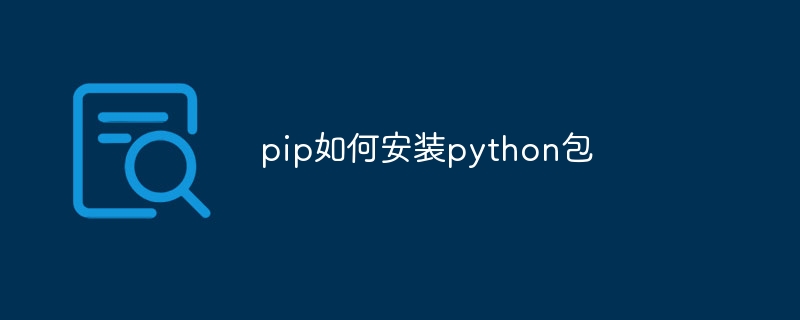
pip installs the python package by entering the "bash`pip install package_name`" command on the command line, where package_name is the name of the package to be installed. When installing some Python packages, you may encounter dependency problems. You can try using a virtual environment. A virtual environment can create an independent Python environment that contains the required packages and their dependencies. The command to create a virtual environment is "bash`python3" -m venv myenv`".

Operating system for this tutorial: Windows 10 system, Python version 3.11.4, Dell G3 computer.
When using pip to install a Python package, you can use the pip command to install the Python package. Enter the following command on the command line:
bash`pip install package_name`
where package_name is the name of the package to be installed.
You may encounter dependency problems when installing certain Python packages. This may be because these packages require other packages or libraries as prerequisites. To solve this problem, you can try using a virtual environment (such as venv or conda). A virtual environment creates an independent Python environment containing the required packages and their dependencies. The command to create a virtual environment is as follows (taking venv as an example):
bash`python3 -m venv myenv`
The command to activate the virtual environment is as follows (Windows and Linux/macOS are slightly different):
bash`source myenv/bin/activate # Linux/macOS myenv\Scripts\activate # Windows`
In the virtual environment , the required packages can be installed without conflicting with other environments.
Upgrade the installed Python package
You can use the pip command to upgrade the installed Python package. Enter the following command on the command line:
bash`pip install --upgrade package_name`
This will update the specified package to the latest version.
View the list of installed Python packages
You can use the pip command to view the list of installed Python packages. Enter the following command at the command line:
bash`pip list`
This will list all installed packages and their version information.
The above is the detailed content of How to install python package with pip. For more information, please follow other related articles on the PHP Chinese website!




